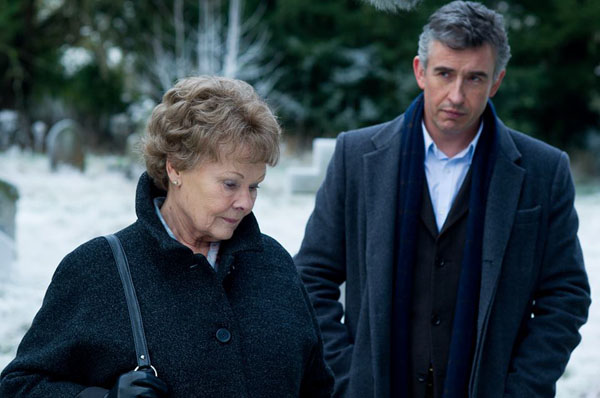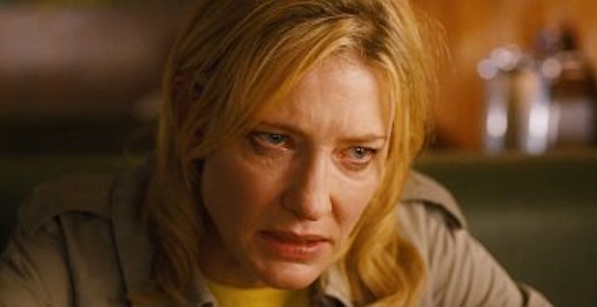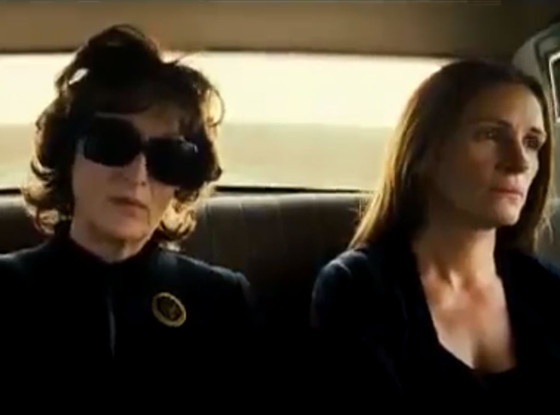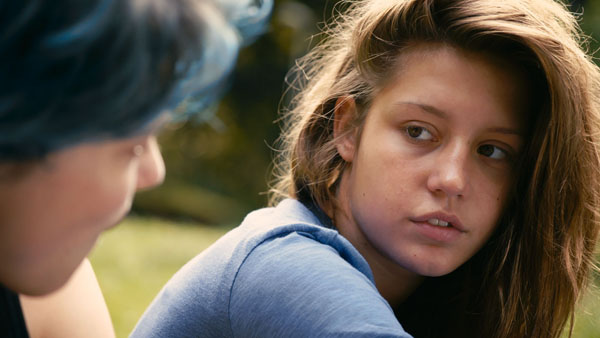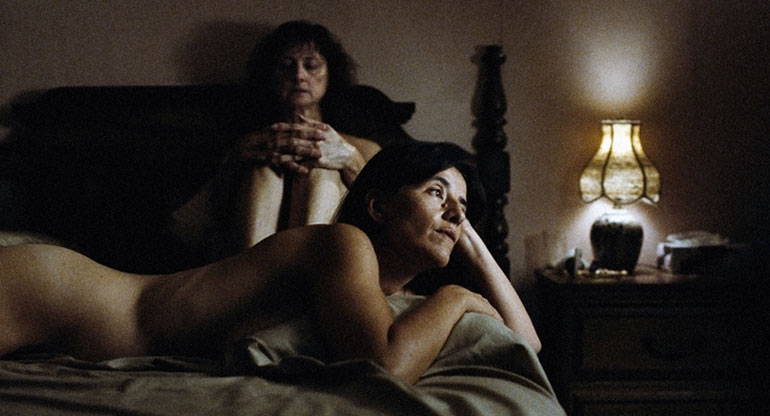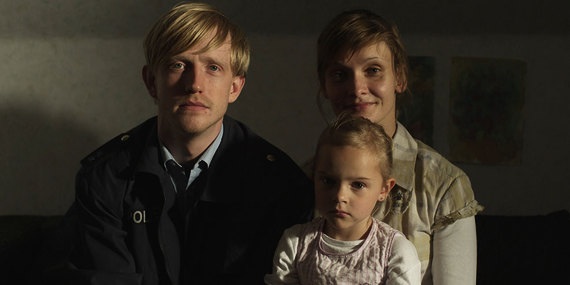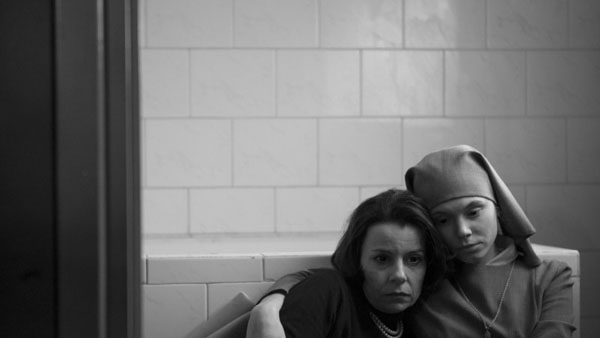Obvious favorites have emerged in this awards season run-up. Whisper-to-shout marketing campaigns are in full swing. And I have my own favorites among the heavy hitters: Meryl Streep outperformed herself yet again, even though everybody thought it wasn’t possible, elevating the otherwise calmly received August: Osage County. Dame Judi Dench is Dame Judi Dench and her performance in Philomena proved there’s no other actress so tender, truthful and disarmingly charming in melding bitter with sweet. Emma Thompson added the much-needed spoonful of tar to Walt Disney’s jar of honey in Saving Mr. Banks.
As deserving as these great ladies are, they will receive no more attention in this list, which concentrates on breakthrough performances, comebacks, actresses who are defiant and fearless despite professional obstacles. Those who managed to put a spell on me and take me on an unforgettable journey. Choosing the ten most memorable (I consciously avoid the oversimplifying word “best”) performances was, as usual, difficult. The only filter I could have used was my inner viewer’s curiosity, admiration, and genuine emotional response.
Before we go back to the list—it’s not a ranking; I want to make it clear—I want to shed some light to an ever present issue of gender bias in the film business. Putting this list together, to make sure I am not forgetting anyone, I once again went through all the festival programs and releases. What struck me is that still most of the featured, and definitely majority of the most talked about, promoted titles, are male-centered. I feels like still there are more interesting, versatile parts available for male actors.
Here my subjective list of the ten most spellbinding female performances of 2013.
Cate Blanchett, Blue Jasmine
Some might say that five-time Oscar nominee and one-time Oscar winner Cate Blanchett is no ice-breaker. She’s already proved her versatility, from artistic peregrinations (I’m Not There), through credibly and autonomously interpreting a historical figure (Elizabeth) to big make-up and budget fantasy franchises (The Lord of the Rings/The Hobbit). But her role in Woody Allen’s Blue Jasmine is another seemingly impossible step up. Jasmine is an absurd construction of myth, obsession and lies with absolute nothingness at its core. Allen has played with neurosis and paranoia several times before, but he has never before looked it so closely in the eye. It took guts to go on this unglamorous journey with him. Blanchett proves she has it.
Julia Roberts, August: Osage County
John Wells’ film is probably disappointing execs at Weinstein, not gaining as many nods and honors as expected. But there’s no doubt the film is a rare collection of truly outstanding performances. Roberts has not been as present in the business as she once was, and, for me, August… is a statement piece, one where the viewer can witness her transformation. As Meryl Streep’s character’s daughter Barbara, Roberts is an equal partner for the legendary star. She’s proven before she can be hysterically funny: now it’s time to add a grain of melancholy, depression, resignation and bitterness to the mix. The perfect girl-next-door has grown up. And yes, she’s aged. But she doesn’t fear this change so many actresses desperately run from, very often falling into the trap of ridiculousness. Playing Barbara meant embracing her beautiful forty-six-year old-self: no makeup, emotions gutted. Her director said of her: There is a moment in every woman’s life, when you’re driving a car with your daughter, stop at the lights, see a man gazing at you, and realize, it’s not you he’s looking at, but her. She said she was ready [to become invisible]. Hats off.
Adèle Exarchopoulos and Lea Seydoux, Blue is the Warmest Color
Thanks to the amazing actresses, the multi-layered and complex emotional chemistry between Adele and Emma can freely grow and morph, taking sometimes mesmerizing, sometimes petrifying forms. Kechiche’s gaze is neither prudent nor judgmental and such perspective quickly spreads to the viewer that absorbs this film as a universal, gender-less story of learning to love and be with and among other people; of discovering the overbearing power of the body. Seydoux and Exarchopoulos make their protagonists perfect in all their imperfections, distant and different, but close and familiar at the same time. It’s not hard to find one’s own doubts, fears and desires in them. However spectacular, the dynamics of their love remain recognizable.
Pierrette Robitaille and Romane Bohringer, Vic+Flo Saw a Bear
Vic (Robitaille) is a sixty-year-old lesbian, an ex-con, released on parole from a life sentence. Her lover Flo (Bohringer) is younger; she loves Vic—and men. Flo’s exuberance, sensuality and inability to stay low-key attracts not only opposite sex, but also trouble… With a DJ-like swiftness and fluidity Côté mixes supposedly odd genres: lesbian romance and thriller, with socially-oriented drama dipped in a black comedy. His characters are strong, uncompromising and relentless, but also fragile, scarred, lost. Doomed? Rumor has it Côté wanted to name the film “Vic and Flo Die in the End.” He changed his mind, but this ironic approach and disdain for any rules, stayed. Pierrette Robitaille and Romane Bohringer form a mesmerizing on-screen duo.
http://www.youtube.com/watch?v=YBn5dgXFMis
Greta Gerwig, Frances Ha
Gerwig is undoubtedly the biggest asset of many in Noah Baumbach’s otherwise great film. Frances is (sometimes painfully) honest, irritatingly indecisive, overwhelmingly energetic, hopelessly sluggish. Watching Frances is a little bit like looking in the mirror with its merciless sharpness and simultaneous ability to distort the shape and size of things. The actress has not only created one of the most current and refreshingly original characters of the 2013, but also co-authored the script. Gerwig is incredibly conscious of her own stage image and presence, and uses it wisely, but harbors a lot of distance and irony towards it. Unlike Frances, who is, after all, too detached from the surrounding reality to form a truly important and deep bond, Gerwig has no problem with understanding the secrets of the human soul and bonding with the viewer.
Kristin Scott Thomas, Only God Forgives
Nicolas Winding Refn’s latest has been a disappointment for many. But contrary to Ryan Gosling’s one-face/one-move act, Scott Thomas has delivered a powerhouse performance. Never before has she been offered the criminal, seductress part. Her Crystal is a platinum-blonde incarnation of an Oedipal mother, a Donatella Versace disguised as a BDSM dominatrix, a deathly, incestuous man-eating siren. Her power comes from sexuality, but she’s in a way the anti-thesis of sexiness. Scott Thomas claims the part allowed her to understand how women use their image as a declaration of war, in a borderline aggressive manner full of violence. It scared her. Her on-screen transformation was also scary, but above all it was immensely impressive.
Alexandra Finder, The Police Officer’s Wife
A stranger to American audience, Finder delivered one of the most striking and memorable of last year’s performances in a Venice 2013 Special Jury Prize winner. Philip Gröning film makes Michael Haneke’s Amour look calculated and not so radical. Finder plays the title character, the young policeman’s wife, Christine. Her finesse in building not only the character, but also the relationships with the character’s husband and daughter, is truly captivating. The actress allows Christine to slowly dissolve in a world of cruelty, violence and despair—one that can develop so complexly only among people who love each other to death. The bruises this film leaves on the viewer’s soul are less visible that the physical marks Christine’s violent husband decorates her fragile, transparent body with. Nonetheless, they hurt just as much, if not more.
Scarlett Johansson, Under the Skin and Don Jon
A seemingly unlikely, but well-deserved presence. Johansson is undoubtedly at her career-best. In equally insightful as delightful Don Jon the actress, eagerly reduced to the sexiest by tabloid culture, proves she actually has tons of distance towards her blonde babe image. At first glance Barbara Sugarman epitomizes masculine fantasy of an ideal woman, but Johansson is deconstructing it wisely and in a hysterically funny way. Jonathan Glazer’s Under the Skin is another unbelievably brave move for a women perceived as a sex symbol. Yes, it indeed shows a lot of skin. However, it is by no means a sexy cheap thrill, but a metaphysical, dark and transcendental journey between worlds. Real and sensual, trust and treason, earth and space, light and dark melt and penetrate each other here in a highly disturbing, magnetic way. Good to know that the Black Widow is fearless not only in Avengers but also in her career choices.
Verlee Baetens, Broken Circle Breakdown
Elise is a tattoo artist who first immerses herself in the world of overwhelmingly intense love, then gets violently transplanted to the darkest regions of brutal reality. The film’s lead, Baetens is contagiously passionate, her emotions identifiable and tangible. Along with her screen partner, Johan Heldenbergh, the actress is weaving an iridescent emotional net, sensibly showing the swelling philosophical asynchronicity growing between their characters, lovers and parents, Elise and Didier. The clash of romanticism and realism, spiritual pragmatism and a need for God in this outstandingly intuitive, emotionally naked performance brought Baetens EFA 2013 Best Actress title.
Agata Kulesza, Ida
This Polish performer has gained critical praise in her native country, winning Poland’s Best Actress award for playing Wanda, a communist judge of Jewish descent, a bitter alcoholic and nihilist, torn by an internal struggle and dragged down by unhealed (and unhealable) wounds from her war-time family trauma. Paweł Pawlikowski’s Ida won the FIPRESCI Award during this year’s TIFF, proving that even very intimate, local stories can be appreciated abroad if their emotional span is relatable and universal. Amazing cinematography helped for sure. Kulesza’s been popular for quite a while, but became critics’ favorite after turning forty. Fearless, gracious, able to handle almost self-consuming intensity in her parts, she’s the one to be closely followed by all, not only polish, cinema-loving eyes.
Special mentions: Eleni Roussinou, Miss Violence; Pauina Garcia, Gloria; Kym Vercoe, For Those Who Can Tell No Tales; Stephanie Cumming, Shirley: Visions of Reality; Melonie Diaz, Fruitvale Station; Sophie Desmarais, Sarah Prefers to Run; Gaby Hoffmann, Crystal Fairy; Brie Larson ,Short Term 12; Julie Delpy, Before Midnight and Sandra Bullock, Gravity.
For the complete list of year-end lists on Keyframe, go to The Year in Film: 2013.
For the complete index of the films on these lists, go to 2013 Year in Review: Indexed.

